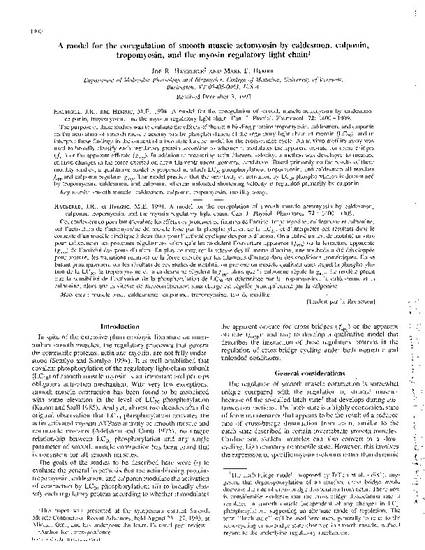
The purpose of these studies was to evaluate the effects of the actin-binding proteins tropomyosin. caldesmon, and calponin on the activation of smooth muscle actomyosin by phosphorylation of the regulatory light chain of myosin (LC20), and to interpret these findings in the context of a two-state kinetic model for the cross-bridge cycle. An in vitro motility assay was used to broadly classify each regulatory protein according to whether it modulates the apparent on-rate for cross bridges (fapp) or the apparent off-rate (garp). In addition to measuring actin-filament velocity, a method was developed to measure relative changes in the force exerted on actin filaments under isometric conditions. Based primarily on the results of these motility studies, a qualitative model is proposed in which LC20 phosphorylation, tropomyosin, and caldesmon all regulate fapp and calponin regulates gapp- The model predicts that the sensitivity of activation by LC20 phosphorylation is determined by tropomyosin. caldesmon, and calponin, whereas unloaded shortening velocity is regulated primarily by calponin.
Available at: http://works.bepress.com/mark_hemric/1/
